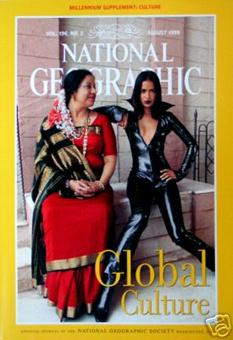Blame it on a sleepy mood in the morning. Or the fact that I am doing too many tech stories for Mint (here, here and even here). Or a beautifully grey-blue morning in Bangalore. Or just the bellboys, who I love putting blame on anyways. Today morning, I woke up convinced that I am a program in its beta stage. Do I hear you laugh? Let me convince you.
 I am continuously changing, evolving, becoming something else. Everything about me is in a flux–physical, mental, emotional, intellectual and all the other lulls. My source code is constantly being tampered with. By me, the things I read everything, by a man on the streets I don’t even know, by the potent combination of conversations and caffeine, by media, the movies I see, the videos I flick through on youtube, even innocent tweets. All of these are constantly tweaking my self, my insides, fusing, fastening, gripping, loosening, doing the salsa with my minds.
I am continuously changing, evolving, becoming something else. Everything about me is in a flux–physical, mental, emotional, intellectual and all the other lulls. My source code is constantly being tampered with. By me, the things I read everything, by a man on the streets I don’t even know, by the potent combination of conversations and caffeine, by media, the movies I see, the videos I flick through on youtube, even innocent tweets. All of these are constantly tweaking my self, my insides, fusing, fastening, gripping, loosening, doing the salsa with my minds.
It’s interesting times, yes. It’s also revolutionary times inside me. I am becoming something else. I don’t even know what yet. What will I eventually turn into? If I look one step ahead, I am scared. There’s nothing but darkness there. A big, black hole of missing code, yet to be written.
Sometimes I am a developer of this conundrum of minds, senses, thoughts, ideas. Sometimes, I am an observer, one of them, helplessly watching from the sidelines as someone tampers, hacks into the deepest core of me, damaging, changing me forever. Sometimes I feel like binary numbers which have stopped making logical sense. Sometimes I feel like god, comfortable and enjoying the organic growth, celebrating the way the beta is shaping up. The way me is becoming, constantly changing, adjusting, tweaking to the demands of users, observers, critics, editors, friends, writers, developers, and opinionators.
I am an immortal beta who will never really become.

 But this blog is not about who’s wrong or who’s right. That would be belittling both their choices. This is about how women are the ones expecting women to fit into an idea of feminist role or into an idea of traditional role. It’s not the men. We don’t need them there. Women are the protectors and keepers of roles—be it traditional or liberated roles.
But this blog is not about who’s wrong or who’s right. That would be belittling both their choices. This is about how women are the ones expecting women to fit into an idea of feminist role or into an idea of traditional role. It’s not the men. We don’t need them there. Women are the protectors and keepers of roles—be it traditional or liberated roles.